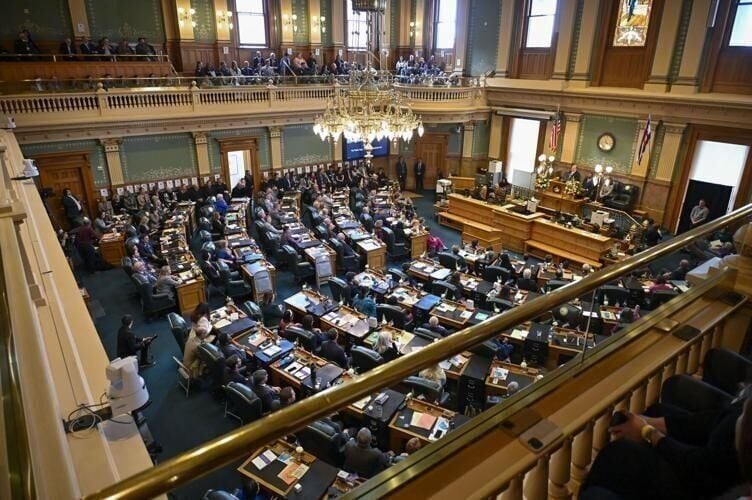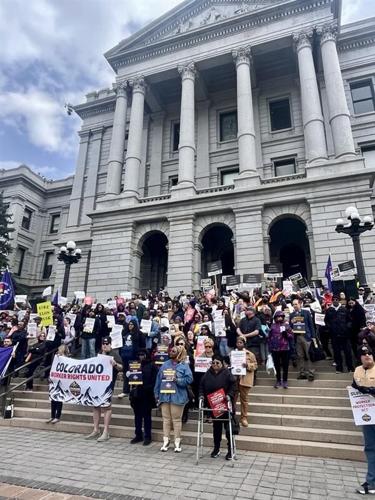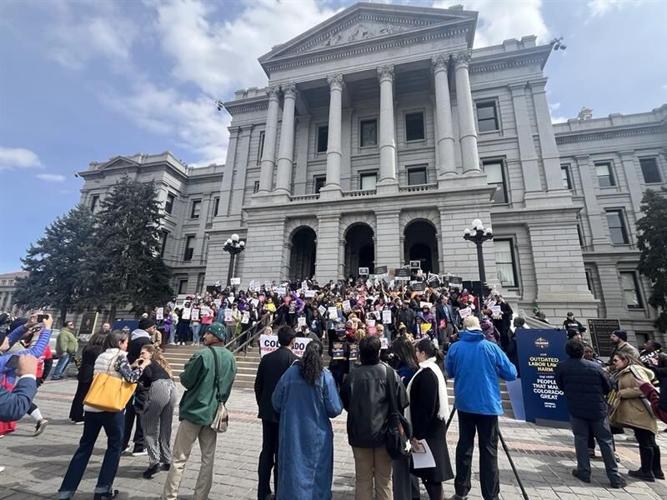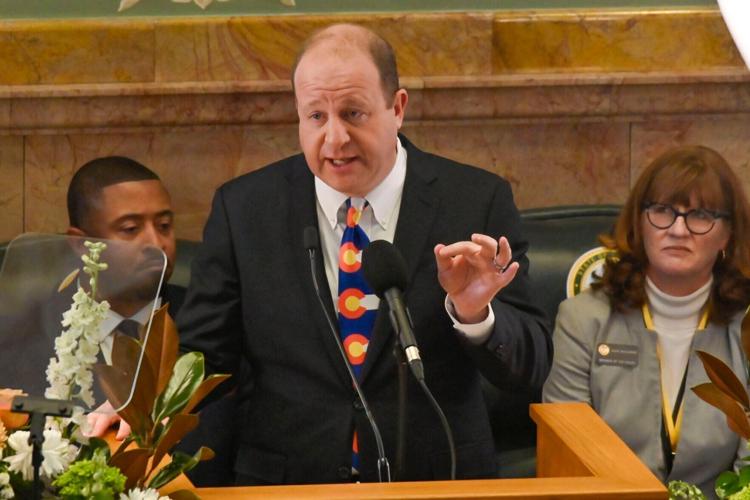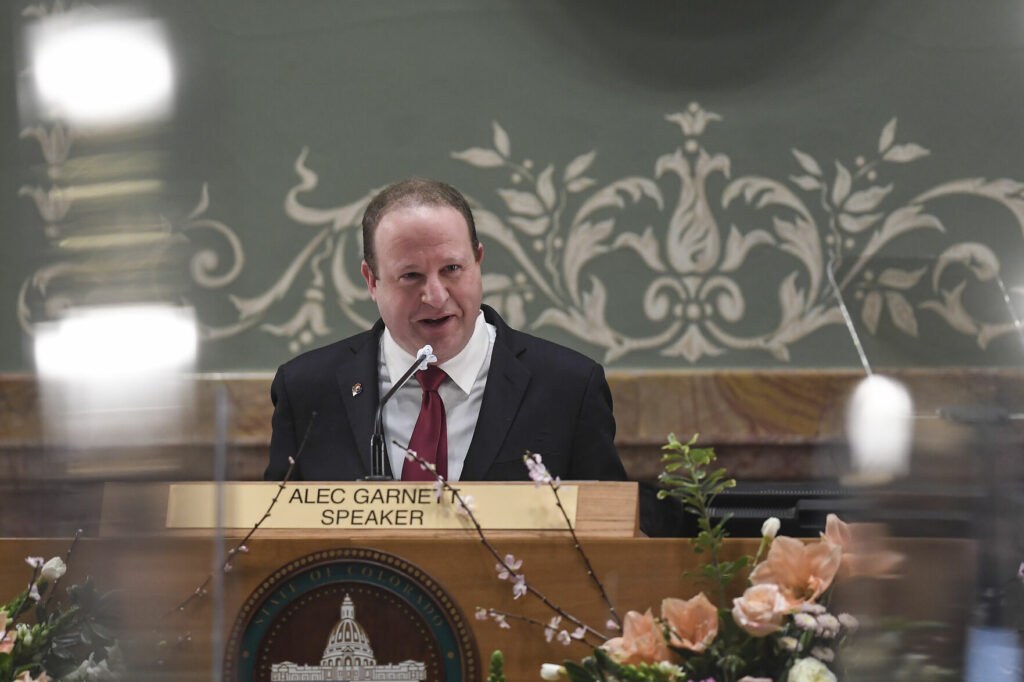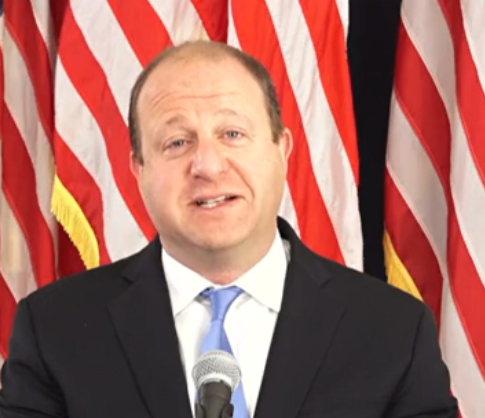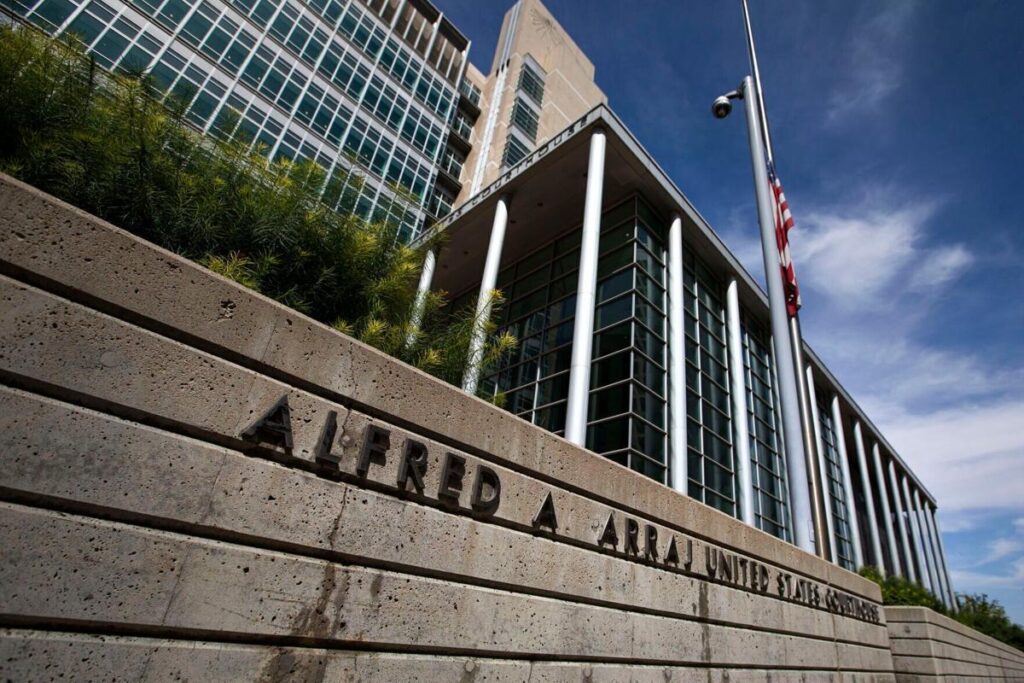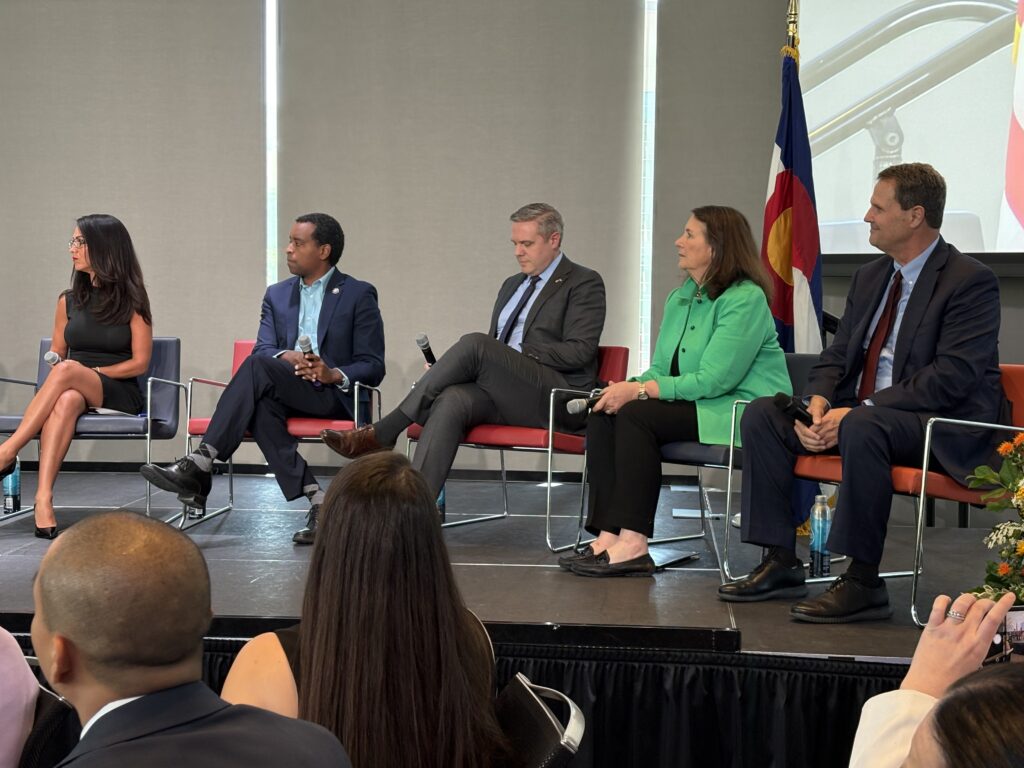Gov. Jared Polis indicates veto of union dues bill is likely | ANALYSIS
Gov. Jared Polis did not categorically say he would veto the proposal to eliminate a key requirement before labor organizations can negotiate imposing union dues on non-union members. Still, he strongly indicated on Thursday that he will reject the legislation.
“We’ve been clear on that,” the governor said, referring to his oft-repeated position that major changes to Colorado’s 80-year-old law governing collective bargaining must secure both business and labor buy-in for him to sign it.
“We worked hard with the business community and labor to find an update, a way to modernize the 83-year-old act, and our criteria was that it had enough buy-in to be sustainable, to be lasting.”
The governor had pushed for a deal in the last few weeks, but the negotiations failed to produce a compromise.
On Thursday, the governor reiterated his position and noted that the efforts to “meet the threshold” he had set for him to approve the legislation fell short.
He also explained his rationale for insisting on a grand compromise.
He said any legislation seeking to “modernize” the nearly century-old law must hold for just as long—or at least over the next few decades.
He expounded on his position that the legislation needs to be durable and not easily swayed by changing political winds.
“It did not meet our threshold for having enough enduring support to, if not last 83 years, at least last for decades, on something that’s important for workers and important for Colorado businesses,” he said.
Polis commended labor and businesses for coming to the negotiating table and trying to compromise.
Having failed to reach a deal, lawmakers sent the proposal to the governor’s desk on Tuesday, shifting the pressure to Polis.
On Thursday, Dennis Dougherty, co-chair of the Colorado Worker Rights United and the Colorado AFL-CIO executive director, said the governor would be “kowtowing to the billionaire class” if he vetoed the measure and that “nurses, truck drivers and other workers won’t forget that the governor betrayed them.”
The coalition of businesses opposed the measure, which included Colorado Concern and the state and metro Denver chambers, earlier said: “Our employees should not be compelled to reduce their paychecks to pay union officials who may not even work at their company and who may support political causes with which they disagree. This is untenable and would be nothing short of taxation without representation for our employees and comes at a time when we already face workforce and affordability challenges in this state.”
Senate Bill 005—sponsored by Senate Majority Leader Robert Rodriguez, D-Denver, Sen. Jessie Danielson, D-Wheat Ridge, and Reps. Javier Mabrey, D-Denver, and Jennifer Bacon, D-Denver—sought to repeal the 80-year-old requirement to hold an election to establish a “union security” agreement at an already unionized workplace. Under that law, once agreed to by the company and the labor group, non-union workers would be required to pay union fees.
Federal law governs union formation. In that election, a labor group must receive a simple majority to unionize — a related but separate issue from what’s before Colorado lawmakers.
At issue at the Colorado Capitol is the state law requiring the “second” election to allow a unionized workplace to negotiate over fees on non-union members. That election requires a higher threshold of a 75% “yes” vote to pass, and the unions want to eliminate it.
Labor and business have clashed over framing a proposal to eliminate a key requirement before unions can negotiate to impose dues on non-union members.
The diametrically opposed framing is unsurprising given major fights at the state Capitol. For labor, it’s likely aimed at drawing public support amid the governor’s pronouncements that he would veto the measure if the two sides could not reach an agreement.
Business, meanwhile, is playing defense, as it seeks to conserve the law that outlines the steps unions must take to impose dues on non-union workers under a company agreement.
The labor coalition pushing the legislation and its allies at the state Capitol have insisted it’s about workers’ ability to unionize, framing it adopted early on by arguing that unionization yields much better economic results for a state.
Business representatives have countered that the proposal has nothing to do with workers’ ability to form a union. They maintained that the legislation deals with imposing dues on all workers, regardless of whether they are union members.
Polis has until June 6 to act on the bill.


